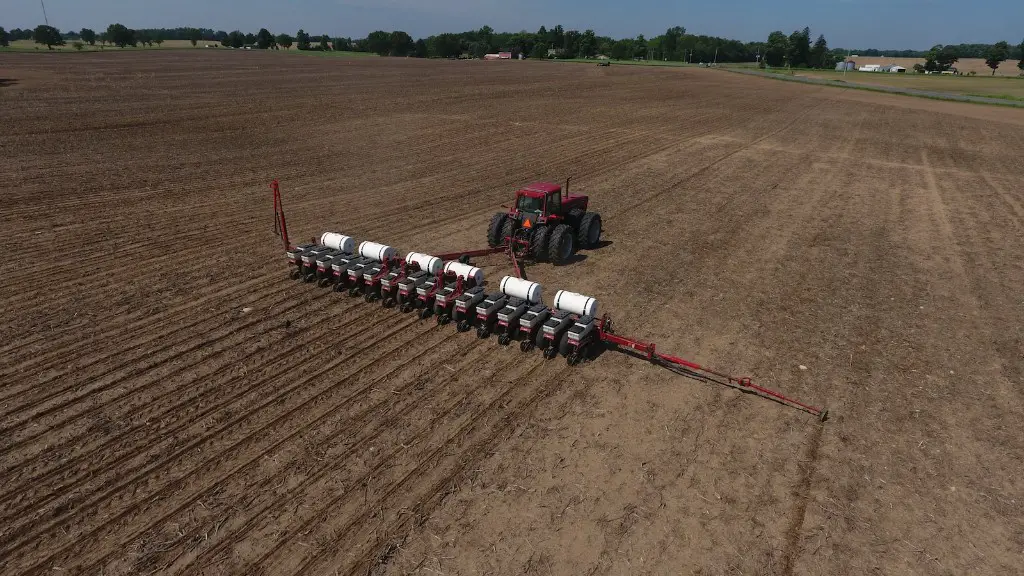Cooperatives play an important role in the agricultural sector by providing farmers with the resources and support they need to be successful. By pooling resources and knowledge, cooperatives help farmers to reduce costs, access new markets, and improve their production. In addition, cooperatives also provide farmers with a powerful voice in the policy arena, ensuring that their interests are represented.
Cooperatives are important to agriculture because they allow farmers to pool their resources and share knowledge and information. By working together, cooperatives can help farmers reduce their costs, improve their products and services, and better compete in the marketplace.
What is the importance of cooperative?
The cooperative business model allows people to take control of their economic future and, because they are not owned by shareholders, the economic and social benefits of their activity stay in the communities where they are established. Profits generated are either reinvested in the enterprise or returned to the members. This business model is an attractive option for many people who want to be in control of their own economic destiny and who want to keep the benefits of their activity within their community.
Agricultural service cooperatives help farmers by providing them with access to supplies and services that they might not otherwise have. This can include things like seeds, fertilizers, fuel, and machinery services. By pooling resources and buying in bulk, these cooperatives are able to get farmers discounts on the things they need to operate their farms. This can help farmers save money and improve their operations.
What are the 3 advantages of cooperatives
The main advantages of a cooperative include that:
-There are equal voting rights for members
-This structure encourages member contribution and shared responsibility
-Liability for members is limited
-There is no limit on the number of members.
A cooperative business is one in which each member holds equal power. The main advantages of this type of business are that it is easy to form, has limited liability, and is less taxed than other types of businesses. Additionally, cooperative businesses offer members access to products and services, social benefits, and business sustainability.
How has cooperative farming helped the farmers?
The co-ops can buy essential inputs such as seed, fertilizer, and pesticide in bulk and sell them to members at a price which is far below the price they would pay alone. This helps member farmers reduce the cost of inputs and ensures timely delivery of quality inputs.
Farmers get benefit from the business activity of cooperative in the forms of inputs supply (fertilizer, pesticide, etc), credit or loan provision; and collective marketing. Cooperative has been successful in providing a profit share to members aside from support the food security through the increased productivity.
What do you mean by cooperation in agriculture?
Organizing through agricultural cooperatives is a way for farmers with common interests to pool their resources and strengthen their market power. By working together, they can more effectively produce and sell their crops, and gain a greater share of the profits. In addition, cooperatives can provide much-needed services and support to their members, such as access to credit, marketing assistance, and technical advice.
Cooperatives can be a powerful tool for smallholders to increase their bargaining power in the global market. By banding together, smallholders can pool their resources and market their products more effectively. This can help them to get a better price for their products and have a stronger voice in the global supply chain.
What are the advantages and disadvantages of cooperative farming
The Farmers’ Producer Organisation (FPO) model is a way for small farmers to pool together their resources and buy inputs at bulk rates, as well as increase the volume of products they produce. This allows them to negotiate for better prices, diffuse risks and share knowledge, skills and labour. Ultimately, this model improves the quality of life of member-farmers.
A cooperative is a business organization owned and operated by a group of people for their shared benefit.
The purpose of a cooperative is to realize the economic, cultural and social needs of the organization’s members and its surrounding community. Cooperatives often have a strong commitment to their community and a focus on strengthening the community they exist in or serve.
Cooperatives can be found in a variety of sectors, including agriculture, energy, banking, healthcare, and housing. The common thread that ties all cooperatives together is that they are owned and controlled by the people who use their services. This democratic structure allows cooperatives to be responsive to the needs of their members and the community.
Cooperatives are an important part of the global economy, with over 1 billion people worldwide being members of a cooperative. In the United States, cooperatives generate over $500 billion in revenue each year.
The cooperative business model is based on principles of self-help, self-responsibility, democracy, equality, and solidarity. These principles are meant to promote a just and cooperative society.
What are the two 2 advantage of cooperative?
A cooperative is a business that is owned and operated by its members. Its main advantage is that it exists and operates for the benefit of its patron members. At the same time, since the members are also the owners, they have a financial interest in the success of the cooperative which sways them toward giving it their full support and patronage.
The main contribution of cooperative is to address the economic problems of the members. Thus, it develops prosperity. It raises fund for improvements of the members and the cooperative itself.
What are two advantages of cooperation
The role of the South Asian Association for Regional Cooperation is to foster cooperation among the member states in order to promote economic development and social progress in the region. The advantages of mobile courts are that they are able to provide access to justice for all members of society, regardless of their location, and are able to dispense justice swiftly and efficiently.
Agricultural cooperatives are organizations that are owned and operated by farmers and other agricultural producers. They provide a way for farmers to pool their resources and work together to achieve common objectives. Major agricultural cooperatives include production and marketing cooperatives, poultry and livestock cooperatives, fishing and fish marketing cooperatives, and food processing and marketing cooperatives. These cooperatives offer farmers a way to increase their productivity and competitiveness by pooling their resources and sharing information and expertise.
How can cooperatives help reduce poverty?
Cooperatives play a key role in the eradication of poverty by creating employment opportunities through direct wage employment, self-employment, and indirect employment. By offering direct wage employment, cooperatives provide people with much-needed income and benefits. Self-employment opportunities through cooperatives give members the chance to start their own business and create their own job. The indirect employment created by cooperatives results in the spillover of their income-generating activities, which creates additional employment opportunities in the community.
Agricultural cooperative societies are farmer-owned and farmer-controlled business organizations. The main objectives of these societies are to promote and process farm products and to achieve optimum purchase and production of these products.
Cooperative societies provide a way for farmers to collectively pool their resources and expertise in order to achieve economies of scale and improve their bargaining power. These societies also help to connect farmers with markets for their products, and provide them with access to information and technology.
In order to be successful, cooperative societies must be well-managed and have the support of the government and the wider community.
Conclusion
There are many reasons why cooperatives are important to agriculture. One reason is that cooperatives can provide farmers with access to capital, which can be used to invest in new equipment, technology, and other improvements. Cooperatives can also help farmers market their products and negotiate better prices with buyers. In addition, cooperatives can provide farmers with access to shared resources, such as storage facilities, and they can offer services such as crop insurance. Finally, cooperatives can serve as a voice for the agricultural industry, advocating for policies that support farmers and rural communities.
There are many reasons why cooperatives are important to agriculture. They provide farmers with a way to pool their resources and market their products collectively. This can help them to compete more effectively with larger businesses. Cooperatives can also help farmers to access capital, land, and other resources that they might not be able to obtain on their own. Additionally, they can provide farmers with training and support in areas such as marketing, financial management, and agricultural production. Ultimately, cooperatives play a vital role in supporting the agricultural sector and ensuring its continued viability.





